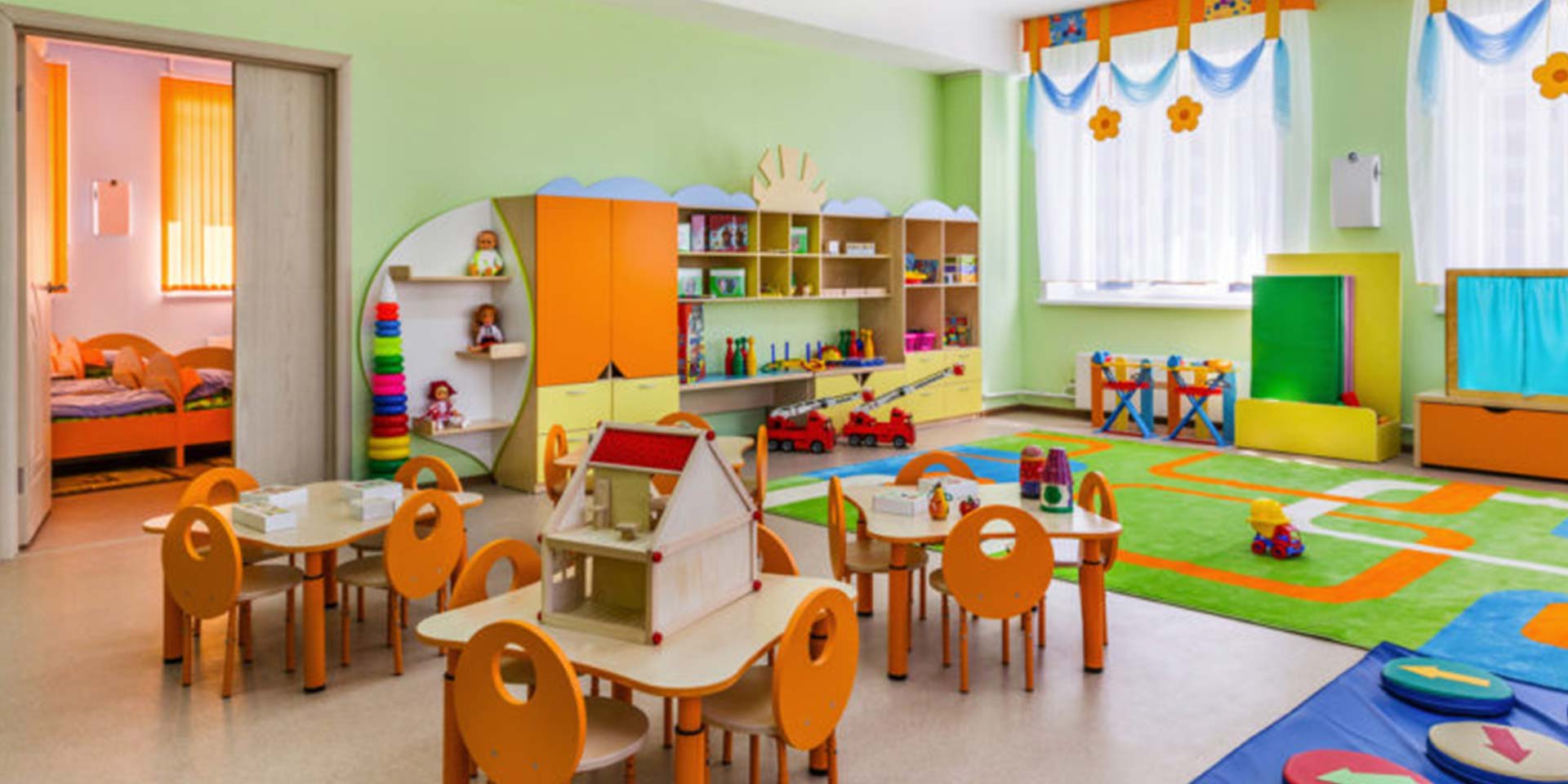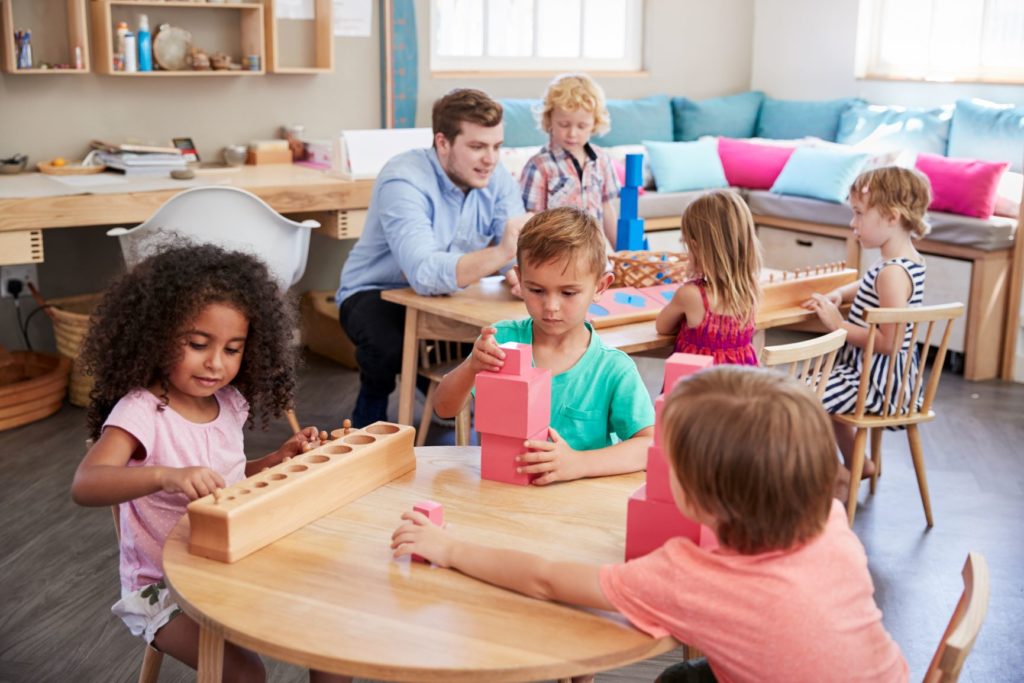How Childcare North York Inspires Cognitive And Emotional Growth
Wiki Article
The Role of Day Care in Fostering Social Abilities and Early Knowing
Childcare serves as a considerable atmosphere for young kids, helping with essential social interactions that promote very early understanding. In this structured setting, kids involve with peers and caretakers, developing vital interaction and cooperation skills. As they navigate play and different tasks, they find out to resolve conflicts and develop emotional knowledge. Recognizing the subtleties of these communications reveals the profound influence childcare carries a youngster's advancement, forming their future partnerships and scholastic preparedness. What certain skills do children obtain in this setup?The Value of Social Interaction in Day Care
While several moms and dads identify the value of very early youth education, the duty of social interaction in daycare is typically underestimated. Daycare setups offer kids with invaluable chances to engage with peers, cultivating crucial social abilities. During these formative years, children find out to browse different social dynamics, such as sharing, collaboration, and dispute resolution. Communicating with diverse age and individualities boosts their capability to adapt to various settings and establish empathy in the direction of others.
Structure Interaction Abilities With Play
Play works as a powerful medium for children to build important interaction skills in day care settings. Through various play activities, children talk, share their ideas, and find out to listen to others. Parlor games, as an example, motivate them to use language in various contexts, promoting vocabulary development and understanding of social cues.
Storytelling during playtime permits youngsters to convey feelings and ideas, helping them establish narrative abilities and self-confidence in their spoken expressions. In general, play not just works as a pleasurable activity but also as a crucial platform for developing the communication abilities needed for effective social interactions in later life.
Urging Collaboration and Synergy
Participation and synergy are important abilities that children can cultivate in daycare atmospheres. Through different group activities, such as developing jobs or collective games, kids discover to share obligations and pursue typical goals. These interactions foster an understanding of the significance of listening to others, discussing functions, and jeopardizing when required.In day care settings, caregivers frequently create opportunities for youngsters to take part in synergy by urging them to take part in team jobs. This not only helps children create social bonds yet likewise cultivates a sense of belonging and area.
As they browse these participating experiences, children gain valuable understandings right into the dynamics of dealing with peers. They learn to value varied perspectives and identify that each participant contributes distinctly to the team effort. Ultimately, these very early lessons together and teamwork lay the groundwork for healthier relationships and efficient partnership in future social and scholastic settings.
Structured Learning Activities and Cognitive Growth
Structured understanding activities play helpful resources an indispensable function in cultivating cognitive development in young kids (Child Care Center). These tasks, which include challenges, narration, and hands-on experiments, stimulate important thinking and analytical abilities. In a daycare setting, organized understanding encourages kids to involve with their peers, enhancing their ability to procedure details and understand different ideas
With led play and interactive tasks, kids establish fundamental abilities such as numeracy and literacy. For instance, activities focused around numbers can aid youngsters grasp mathematical concepts, while storytelling improves language purchase and understanding. In addition, organized understanding allows educators to assess developmental progress and tailor activities to specific understanding needs.

Integrating a diverse variety of organized tasks not just advertises cognitive growth but also prepares children for future scholastic success. By giving a well balanced atmosphere that fosters exploration and questions, day care programs play a necessary function in shaping the cognitive abilities of young students.
Promoting Emotional Knowledge and Self-confidence
Emotional knowledge and self-confidence are vital components of a child's growth, matching the cognitive skills cultivated with structured learning tasks. In day care settings, kids are offered with opportunities to share their emotions and take part in social interactions, which are crucial for constructing emotional awareness. With guided play and team activities, children discover to identify their sensations, recognize those of others, and create empathy.Communication with peers and caretakers aids to cultivate self-worth and resilience. Favorable reinforcement and inspiration from grownups encourage children to take dangers and try this out face difficulties, cultivating a sense of success. As they navigate social dynamics, kids build confidence in their capacities to communicate, work together, and settle disputes - Child Care Center. This caring environment enables the progressive advancement of psychological intelligence, which is vital for future social relationships and overall wellness. As an outcome, daycare plays a considerable function in promoting both emotional knowledge and self-confidence in young kids
Frequently Asked Questions
Exactly How Can Moms And Dads Select the Right Childcare for Their Child?
Parents ought to think about aspects such as area, team qualifications, safety requirements, curriculum, and evaluates from other parents when selecting the best day care for their kid, ensuring it lines up with their kid's developmental needs and household values.
What Age Is Best for Starting Daycare?
:max_bytes(150000):strip_icc()/GettyImages-956997658-af489cbf5e3b4a2cbe26e2e78016a0a2.jpg)
Just How Does Daycare Influence Children's Habits at Home?
Day care often positively affects children's habits in the house by improving social abilities, promoting self-reliance, and motivating emotional policy (Daycare North York). Consequently, kids might exhibit enhanced communication and collaboration, bring about more harmonious household characteristicsExist Any Drawbacks to Day Care Presence?
Yes, there are downsides to day care participation, consisting of potential separation anxiety, exposure to health problems, and irregular caregiving. These variables can affect a child's emotional well-being go to this website and modification in your home, affecting total family members characteristics.How Can Parents Support Social Skills Learned at Daycare?
Parents can support social skills discovered at day care by assisting in playdates, encouraging participating activities, modeling favorable interactions, reviewing sensations, and enhancing sharing and communication in your home, thus boosting their youngster's social growth and self-confidence.Day care serves as a considerable atmosphere for young children, facilitating important social interactions that advertise very early discovering. Day care settings provide children with important opportunities to involve with peers, cultivating necessary social skills. Play serves as an effective tool for youngsters to develop essential communication abilities in day care settings. In childcare setups, children are provided with possibilities to reveal their emotions and involve in social interactions, which are crucial for building psychological understanding. Daycare usually favorably influences kids's behavior at home by boosting social abilities, promoting freedom, and encouraging psychological guideline.
Report this wiki page